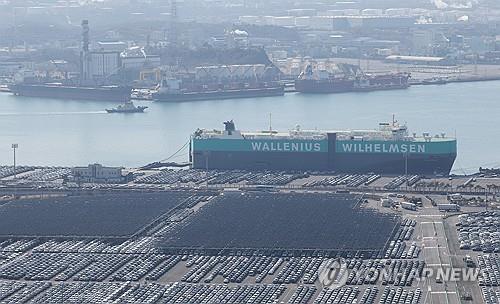- California Assembly OKs highest minimum wage in nation
- S. Korea unveils first graphic cigarette warnings
- US joins with South Korea, Japan in bid to deter North Korea
- LPGA golfer Chun In-gee finally back in action
- S. Korea won’t be top seed in final World Cup qualification round
- US men’s soccer misses 2nd straight Olympics
- US back on track in qualifying with 4-0 win over Guatemala
- High-intensity workout injuries spawn cottage industry
- CDC expands range of Zika mosquitoes into parts of Northeast
- Who knew? ‘The Walking Dead’ is helping families connect
S. Korea’s import prices rise for 4th month in Jan. on weak won, high oil prices
South Korea’s import prices rose for the fourth consecutive month in January due mainly to the weak local currency and high global oil prices, central bank data showed Friday.
The import price index climbed 2.3 percent last month from a month earlier, according to the preliminary data from the Bank of Korea (BOK).
From a year earlier, the figure advanced 6.6 percent in January.
Import prices of raw materials increased 4.4 percent on-month in January, and those of intermediate goods gained 1.6 percent, according to the BOK.
Import prices are a major factor that determine the path of the country’s overall rate of inflation.
The price growth came as the average price of Dubai crude, South Korea’s benchmark, gained 9.8 percent from a month earlier in January to stand at US$80.41 per barrel.
The Korean won fell to 1,455.79 won per U.S. dollar in January from the previous month’s 1,434.42 won. From a year earlier, the won sank 10 percent.
The export price index rose 1.2 percent from a month earlier in January on the strong dollar, also marking the fourth consecutive month of increase.
Compared with a year earlier, the index surged 8.5 percent.
“Rising import prices lead to high consumer inflation,” BOK official Lee Moon-hee told reporters. “Uncertainties remain high regarding the U.S. government’s new tariff plans, and changing global market prices would affect our export and import prices.”
Consumer prices, a key gauge of inflation, rose by the largest margin in six months of 2.2 percent on-year in January, government data showed.












